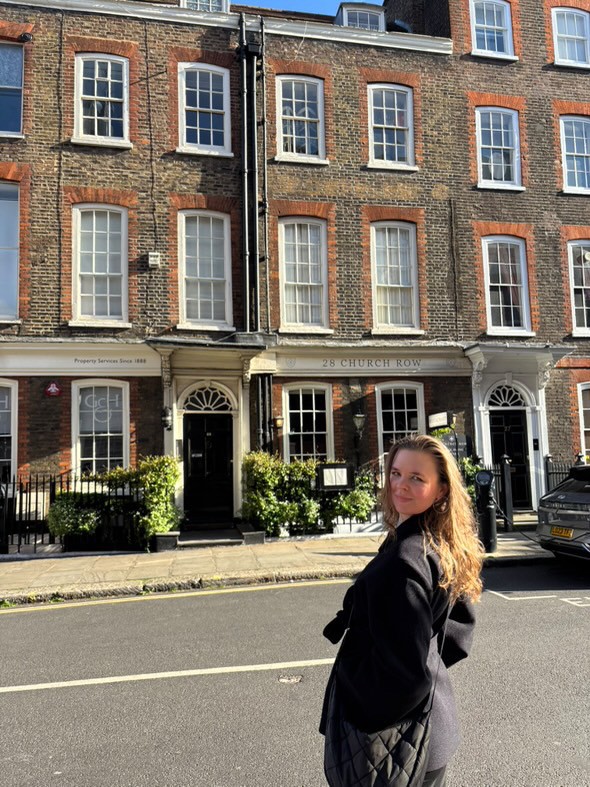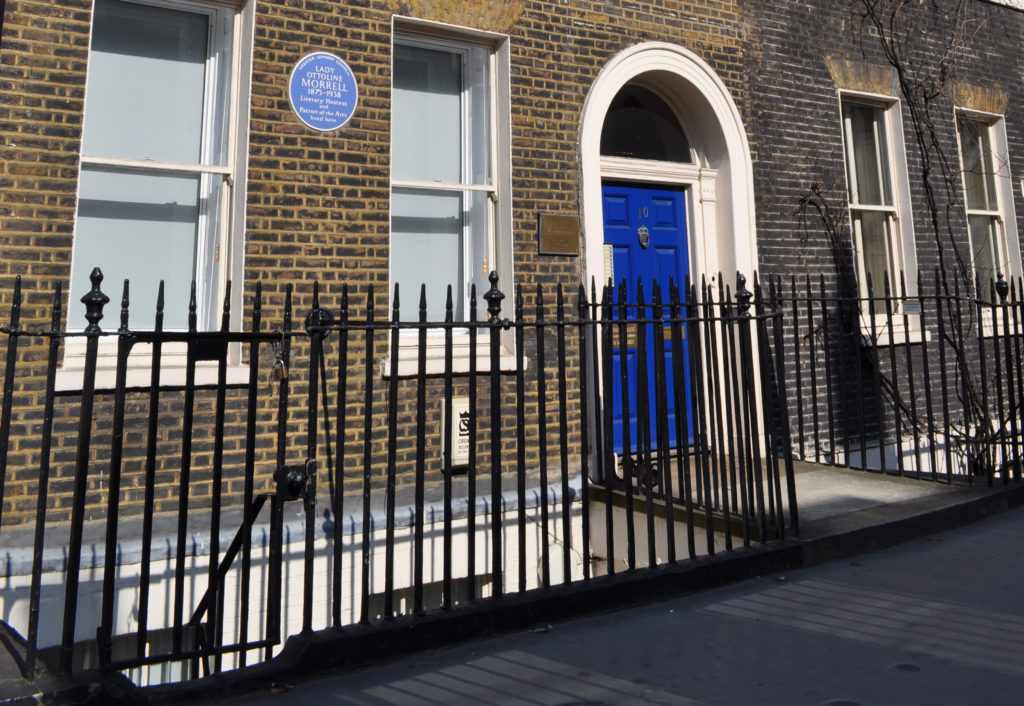Isa is a BA Creative Writing student at Birkbeck, University of London. Originally from the Netherlands, she began her journey with a foundation year. In this blog, she shares what that year was really like, from adapting to academic life in English to making friends and finding her rhythm in a new city.

Hi, my name is Isa. I moved to London in September 2022, just after turning twenty. As an international student, I know how disorienting it can be to study in a new country, so in this post I hope to give you some insight on what it’s like to do a foundation year at Birkbeck, and how it helped me prepare – academically, socially, and personally – for the BA in English and Creative Writing I’m now studying.
Why a Foundation Year?
From the age of ten, I knew I wanted to move to another country (my parents were thrilled). I spent years building up my English: reading, watching films, and even studying and working in hospitality to practice speaking and listening. By the time this was done, I’d decided I wanted to study English and Creative Writing. But when it came time to apply to university, I didn’t yet meet the entry requirements for a full degree in the UK. This is where studying a foundation year came in.
What you actually learn on a foundation year
The foundation year was all about building the core skills needed for degree-level study. My only experience of writing up until this point was crafting handwritten apology notes to my parents and sliding them under their door, or composing poetic emails of love and devotion to my friends – so I had a lot to learn. I had never written academically in English before, either. I came in with a B2 level, which meant I could understand and contribute to conversations, but writing a university-level essay was something else entirely.
In my first term, we focused a lot on essay writing, learning how to structure an argument, reference properly, and express ideas clearly in academic English. I tried out lots of different approaches to structuring essays, and over time, I figured out what works best for me: I now know I need weeks of preparation – reading, taking notes, exploring different viewpoints – before I can even think about writing. Otherwise, I end up overwhelmed and confused.
In the second term, the modules became a bit more subject-focused. I remember one called Arts: Questioning the Contemporary World, which introduced creative thinking and academic debate. It gave me a taste of what the full degree would be like.
Is it hard?
The short answer is: it depends on where you’re coming from. For me, it was a learning curve, but a manageable one. You might fail a little at the start, and that’s totally okay. The whole point is to learn how to learn.
There’s also a lot of support. One thing I’d really recommend: take good notes during the induction week and ask every question that pops into your head. You’ll thank yourself later when you’re trying to figure out what’s expected in an assignment or when your deadlines are.
And bear with me on this, but… look at Moodle. You’re going to hear it a lot, but it’s truly a good hub of information about assignment deadlines, marking criteria, and reading lists that will help you get a good grade
Balancing life, work and study
A foundation year offers a flexible way into university life, with plenty of opportunities to socialise and work.
I don’t think I would have explored London as much if I had gone into my BA straight away. It was such a big adjustment for me that the extra year made room for me to do just that. Birkbeck’s model of evening classes gave that extra flexibility for studying and work, which really helped me out. I had classes two evenings a week, which left plenty of time for self-study, part-time work, and getting to know the city.
It’s still a challenge to juggle everything, especially at first, but once you’ve got a few weeks under your belt, it gets easier to plan ahead.
For me, it’s helpful to write everything in my agenda – even hobbies that I want to make time for. This makes room in my head for other things instead of trying to remember what I needed to do. I also recommend having a chat with your personal tutor early on if you’re trying to balance multiple commitments. They really are there to help.

Making friends (and a life in London)
I threw myself into the social scene at Birkbeck; during my first week, I went to the international student mixer, the art foundation year introduction, and, months later, I signed myself up for the Women’s Society afternoon drinks on Mondays. These three events are where I found my friend group.
In February of that academic year, I started working at a cocktail bar in Soho. Through the chaotic and bustling service of London’s nightlife, I bonded with people that I never thought I would. I think those connections are a part of what makes studying in London so unique and special.
When it comes to making friends, I think it’s important to put yourself out there and show effort. Get food and drinks with people after class, keep showing up, even if it isn’t always super convenient. When you’re building friendships across cultures and backgrounds, that effort matters.
But also—it’s fine if your university friendships stay light and casual. Not everything has to be deep. Both kinds of connection are valuable.
Final thoughts
A foundation year can seem like a step sideways – but for me, it was exactly the step I needed. It gave me time to adjust to academic life in English, explore London at my own pace, and build the confidence to move forward.
A foundation year will give insight into the academic structure that is expected during your bachelor’s, and support with time management, discussions, and even public speaking. It’s especially helpful for students who have been away from studying for a while, don’t yet have the qualifications, or just need a year to prepare for their bachelor’s degree.
Now I’m in my second year of the BA, and doing great. A classmate who was a mature student studying the Foundation year alongside me, is also in his second year, and seems to be thriving as well. It’s worth it!
More information:

